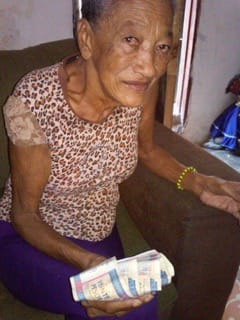At a funeral, two friends face the betrayal that destroyed one of their lives
Joaquin Ciria did 32 years in prison for a murder he didn't commit. His best friend could've saved him -- but stayed silent.
Joaquin Ciria called me some weeks back with devastating news.
His mother, 81, had died in Cuba. They hadn’t seen each other since 1980, when 17-year-old Joaquin fled to the U.S. to escape a conscripted position in the Army. The refugee ended up in San Francisco, then was held 32 years in prison for a murder he didn’t commit.
Ciria, at age 61, was released in April 2022. For many years after his 1991 conviction, they hadn’t even been able to hear one another’s voice because Ciria wasn’t allowed international calls. Magaly Hernandez had spent the last three decades telling all of Havana of his innocence. When word spread in the media stories about her son’s exoneration, people came running to her home, screaming and crying with joy, hugging her neck.
Her son called her from San Francisco.
“Now I can die,” Hernandez, who was thin and frail, told her son. “I know that you’re free.”
“Wait,” he said. “I have to see you, Mama.”
When? Ciria was unable to travel the Cuba due to lingering immigration concerns from his wrongful conviction. He never saw her again.
I was giving Ciria my condolences when he stopped me to say he needed to tell me the rest of the news. It was about his old friend Roberto Socorro. Socorro had come forward — to Ciria’s mom’s living room in 2019 — to reveal that he’d secretly witnessed the murder and recognized the killer as a different man. Socorro said he’d known all along that Ciria was innocent but hid it from him because he’d lived by a strict anti-snitching code that he’d come to regret. Ciria and Socorro, who’d met as children in Cuba, ended up spending years in prison together. Socorro held a position of authority among other prisoners and, Ciria acknowledges, could have been hurt or killed for informing on the real killer. Socorro told his secret to Ciria’s mother after he’d been released from prison and deported to Cuba.
Magaly Hernandez
Socorro’s statements, along with other powerful new evidence, led to Ciria’s freedom. The only thing Socorro wanted — and as time passed, needed — was Ciria’s forgiveness. He knew it might take years or never happen. The men went back to childhood in Havana, then the streets of the Mission District, then California state prison. They were brothers except in blood.
Ciria wanted to forgive Socorro. But Ciria was naturally very angry. He didn’t want to think about Socorro and couldn’t bring himself to call him. He hoped time would do something, to work on his heart.
On Sept. 3, the day of Hernandez’s funeral, Ciria was in the U.S., wishing he could be in Havana to say goodbye. He got a video call. It was a cousin, who stood in the sun-soaked cemetery with above-ground vaults, and Ciria’s mother’s casket still waiting to be interred.
The cousin told Ciria he wouldn’t believe who was there.
The cousin turned his phone camera, revealing Socorro. He stood at the casket, head bowed, giving his respects to Hernandez, whose face could be see through a viewing window in the dark wood.
Ciria felt a thunder clap — stunned. He thought of his mother, how she’d been outraged when Socorro had shown up at her house to unload his secret, how in the end she had embraced and consoled the tearful man. She could tell Socorro was ashamed — and, whatever else was true, he there to help now.
After he heard of Ciria’s mother’s death, Socorro wondered how he’d be received by the family at the funeral. He decided to face whatever reaction he had to because he wanted to honor his friend’s mother, whether he’d lost that friend or not. Through the cell phone, Ciria could see that Socorro was horribly thin, still losing weight amid food shortages and his inability to find work.
Socorro, far right, stands with Ciria’s wife, Gloria.
Ciria thought he heard his mother’s voice: “Forgive this man.”
Ciria asked his cousin to pass the phone to Socorro.
“I forgive you, brother,” Ciria told Socorro. “You have my 100% forgiveness.”
Socorro — stunned, then crying — savored the words. “I feel released,” he said.
Ciria hadn’t expected it, but felt released too.
—
An interview on NPR about Ciria and Socorro, cops
I was thrilled to join Deepa Fernades on NPR’s Here & Now this week to talk about two stories. One was the above story, a version of which originally appeared in The San Francisco Chronicle. The other was by story about the detectives who led Ciria’s wrongful conviction — and another man’s just a few months later.
Give it a listen: here.
—





